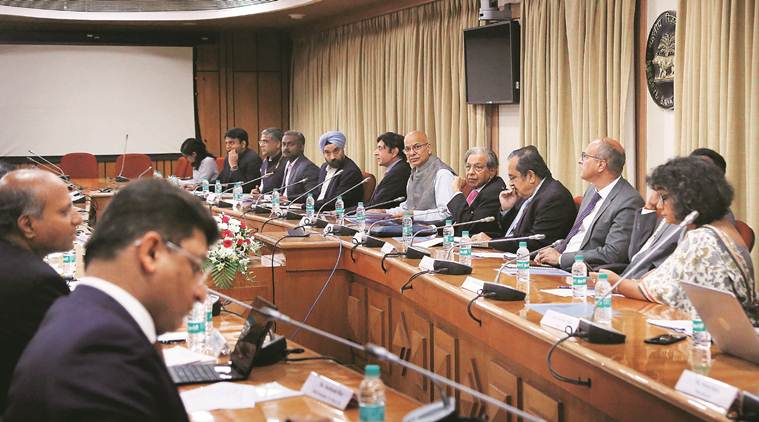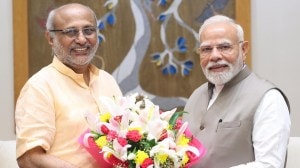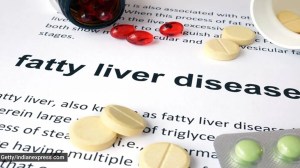The 15th Finance Commission has recommended keeping the tax devolution share “virtually unchanged” to states at 41 per cent for the year 2020-21, compared to 42 per cent at present. The 1 percentage point reduction has been done to account for the reorganisation of the erstwhile state of Jammu and Kashmir.

The Commission’s report, along with an action taken report, was submitted in Parliament today. The Commission has earlier submitted its report to President Ram Nath Kovind last December. “In the spirit of co-operative federalism, I am pleased to announce that we have, in substantial measure, accepted the recommendations of the Commission,” Finance Minister Nirmala Sitharaman said in her Budget speech.
Story continues below this ad
The commission would submit its final report to the President during the latter part of the year, for five years beginning 2021-22. The commission has also recommended Rs 90,000 crore as grants to local bodies for 2020-21, which is 4.31 per cent of the estimated divisible pool. For determining state-wise allocations for disaster risk management, the panel has suggested a new methodology which combines capacity, risk exposure and proneness to hazard and vulnerability.
Read | Govt maintains protectionist stance; hikes import duties on over 100 categories of products
According to the Commission’s recommendations, the share of several states has decreased in the divisible pool for financial year 2020-21 while others has increased. For instance, Uttar Pradesh which has the largest share in divisible pool, has seen a marginal decline from 17.959 percent during 14th Finance Commission to 17.931 in the 15th Finance Commission. Similarly, Punjab’s share has also come down to 1.577 percent from 1.788 percent during 14th Finance Commission. Among the major states, Andhra Pradesh, Telangana and Kerala too have seen a decline in their share in the divisible pool.
However, the share of Tamil Nadu in divisible pool has increase from 4.023 percent to 4.139 percent. Bihar too have seen a rise from 9.665 to 10.061 percent. Maharashtra is another major state whose share in divisible pool has increased from 5.521 percent to 6.135 percent.
Story continues below this ad
The increase in the share of Tamil Nadu is significant as the state had demanded to reframe the 15th Finance Commission’s terms of reference. The State had argued that it will lose if the census year for calculating revenue distribution is changed from 1971 to 2011 as the it had made progress to check the population rise in last four decades.
Also Read | Govt invokes clause in FRBM Act to raise fiscal deficit target to 3.8% from 3.3%
The Fifteenth Finance Commission (FFC) has also recommended grant for states who implement agricultural reforms. “The States will be eligible for financial incentives if they enact and implement all features of the Model Agricultural Produce and Livestock Marketing (Promotion & Facilitation) Act issued by the Ministry of Agriculture, Cooperation and Farmers Welfare in 2017 and Model Agricultural Produce and Livestock Contract Farming and Services (Promotion & Facilitation) Act issued by the Ministry of Agriculture in 2018 and Model Agricultural land leasing Act, 2016 prepared by the NITI Aayog”, said the Finance Commission in its report.
“We recommend that state government take predatory action by securing the passage of these bills in their respective legislature in 2020-21 to become eligible to avail the grant awarded by us from 2021-22 onwards”, it added.
Commission will submit report later in year
Story continues below this ad
# The commission would submit its final report to the President during the latter part of the year, for five years beginning 2021-22.
# The commission has also recommended Rs 90,000 crore as grants to local bodies for 2020-21, which is 4.31 per cent of the estimated divisible pool. For determining state-wise allocations for disaster risk management, the panel has suggested a new methodology which combines capacity, risk exposure and proneness to hazard and vulnerability.
# The share of several states has decreased in the divisible pool for financial year 2020-21 while others has increased
# Uttar Pradesh, which has the largest share in divisible pool, has seen a marginal decline from 17.959 percent during 14th Finance Commission to 17.931 in the 15th Finance Commission. Punjab’s share has come down to 1.577 percent from 1.788 percent in 14th Finance Commission. Among the major states, Andhra Pradesh, Telangana and Kerala too have seen a decline in their share in the divisible pool.
Story continues below this ad
The Indian Express is now on Telegram. Click here to join our channel (@indianexpress) and stay updated with the latest headlines
 The commission would submit its final report to the President during the latter part of the year, for five years beginning 2021-22.
The commission would submit its final report to the President during the latter part of the year, for five years beginning 2021-22.






























